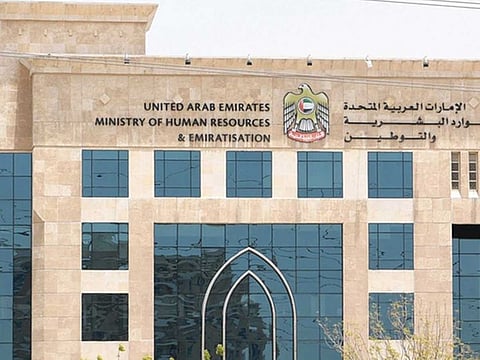Five cases when your company may be classified as ‘high risk’
High risk firms face several penalties, but companies can improve their classification.

Dubai: If you are a business owner operating on the mainland, it is critical to ensure that your operations are compliant with the UAE’s Labour Law – Federal Decree Law No. 33 of 2021. Failing to fulfil basic employee obligations, like paying their salary on time, or not addressing their complaints, can lead to your company being categorised as a high-risk establishment.
What is this classification and how will being categorised as high-risk affect your establishment? Here is all you need to know.
What is a high-risk establishment?
The UAE’s the Ministry of Human Resources and Emiratisation (MOHRE) has classified companies in the UAE based on their compliance with the UAE’s Labour Laws, the Wage Protection System and the establishment’s Emiratisation rates, dividing them into three categories. While the first and second classification is for companies that are largely complying with these criteria, the third category is referred to as ‘high risk’.
In an online post on December 7, MOHRE raised awareness on the five cases when a company may be classified as high risk:
1. Late payment of employee wages. (To know more about this criterion, as per the UAE Labour Law, read our detailed guide here).
2. More than one work strike in the past 12 months.
3. Labour complaints referred by MOHRE to court exceed 30 per cent of the total of registered workers.
4. Invalid and non-renewed work permits exceed 30 per cent of the total registered workers .
5. Notifications on work strikes exceed 30 per cent of the total registered workers.
Employee insurance becomes mandatory for establishments in this category
In the online post, MOHRE also stated that when a company is classified as high risk, it becomes mandatory for them to implement the employee insurance system when issuing or renewing a work permit.
Companies that are classified in category 1 and 2, also have the option to pay a bank guarantee of Dh3,000 for each employee, instead of enrolling them in an insurance scheme. This option is not available to companies classified as high risk.
For an in-depth guide on the difference between a bank guarantee and employee insurance, click here.
Article 8 of Cabinet Resolution No. 18 Of 2022
1. Establishments governed by the Federal Decree-Law No. 33 of 2021 are obligated to pay a bank guarantee of Dh3,000 for each worker or to insure each worker, in accordance with the schemes approved by the Ministry of Human Resources and Emiratisation. 2. As an exception to Clause (1) of this Article, establishments that are classified by the Ministry of Human Resources and Emiratisation as high-risk are obligated to insure all workers in accordance with the schemes approved by the Ministry of Human Resources and Emiratisation.
How can a company improve their status?
Article 2 of Cabinet Resolution No. 208 of 2022 explains that a company’s high-risk status will only be lifted if they have settled the complaints that have been raised against it and there have been no reports of work interruption in a period of 12 months.
Sign up for the Daily Briefing
Get the latest news and updates straight to your inbox



